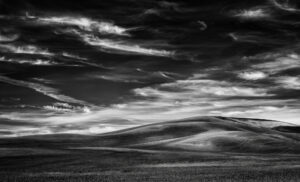 The famous line, “Frankly my dear, I don’t give a damn” has never been more appropriate, at least for me when it comes to all the current fuss about AI in photography and how it could “change” photography in the future.
The famous line, “Frankly my dear, I don’t give a damn” has never been more appropriate, at least for me when it comes to all the current fuss about AI in photography and how it could “change” photography in the future.
I’ve received email, phone calls from folks who read my blog, have taken workshops and others asking my feelings about AI in photography. I wasn’t even going to address it since so many others have in so many ways.
I really don’t have a lot of concern regarding the effect of AI on our craft. Consider the following:
When color film came into our world around 1940 when Eastman Kodak introduced it as a medium for the motion picture industry, it created a major controversy. Even Leica in an ad said, “Color film is “too literal to complete with works of art” because it was unable to “elevate the imagination” The legendary photographer Henri Cartier-Bresson, known as a monochrome artist, even announced “Color is Bullshit”! …Sound familiar?
When HDR became popular in recent years many feared that images created by using HDR techniques would become the norm and look unrealistic. Lot’s of HDR images did, due to poor processing technique and poor blending technique. (Did you know HDR wasn’t really a new phenomenon? It was used as far back as the mid 1880’s.) Technology has made it quite easy to blend images and even the use of graduated neutral density filters is unnecessary in many photographs. Somehow, we got over this panic as well didn’t we.
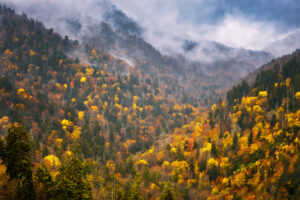 Other examples of so-called advances in technology have all occurred and after the initial controversy things quieted down. I think AI will as well, at least for me and many of my colleagues. I cannot speak for all other photographic artists but as far as I am concerned, it’s a non-issue. I’m not young anymore and maybe that’s part of why I am not concerned about AI. I’ll continue to do as I do, enjoy what I do and not get overly concerned about things I can’t control. Thays a good way to live these days.
Other examples of so-called advances in technology have all occurred and after the initial controversy things quieted down. I think AI will as well, at least for me and many of my colleagues. I cannot speak for all other photographic artists but as far as I am concerned, it’s a non-issue. I’m not young anymore and maybe that’s part of why I am not concerned about AI. I’ll continue to do as I do, enjoy what I do and not get overly concerned about things I can’t control. Thays a good way to live these days.
I have little doubt there will be some who use AI in deceptive and self-deprecating ways much like many photographers use technology as a crutch to coverup their faulty technique. Plagiarism in our medium is way too prevalent for me these days as well as the overuse of technology both in our ever-advancing gear and software. AI is just another tool in the box. I see lots of so-called photographers making interesting images using processing and hi-tech gear, rather than their eyes and brains. That’s for another article on another day.
Many of my friends and workshop attendees know how I always strive to depict a scene in a personal way, telling my own personal story. But as I have said and written in previous articles, even I do some unrealistic things, as do many of you. Do you use a long telephoto lens? If you do, it’s not natural. Do you use an ND Filter to slow down water in a stream? If you do it’s unnatural. My point is that we all process our images, and we all use technology to a great extent. I do take a somewhat different point of view than most though. If the photographer says what he or she did to produce the image, it’s all good. If others need to create what I call Photo-Art, go for it, and tell us how you created the image. If what’s implied in a photograph (long lens, slow water etc.) is easy to determine then we can easily figure that out. My bottom line is just “say what you did”.
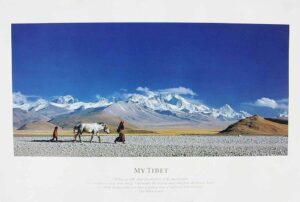
©Galen Rowell
Remember the saying “The camera does not lie”? Most of us know that to be false but we keep saying it! Here in my home, we have a print made by Galen Rowell called “Evening on the Tyngri Plain below Cho Oyu (a 26,750-foot mountain in Tibet). I remember Galen telling me how he made that image. Galen was travelling with a guide. A woman and boy were pulling a horse and had already walked past the background of the mountain that Galen wanted for his background. He and his camera were not ready at the right time to produce the results he wanted. Luckily, the woman was the guides wife and his guide asked her to go back and walk the path again so he could make that image. Is that deception? Maybe, but Galen was always forthcoming in telling us how he made one of his most famous images.
THE EXPERIENCE WILL NOT BE REPLACED BY AI
If I am somewhere and I like what I see and visualize the final image, (considering the subject, light, final story etc.) I’ll take the photograph. Often, I’ll hang out and if by chance it looks better, I’ll always shoot it again. When I am out on my own, I do not over prepare, rather respond spontaneously to the environment. For me, I have a need to become emotionally involved in the photography. I try to not make the same mistake twice. I see too many photographers put the photograph before the experience. That is truly a shame. SUGGESTED READING: THIS article by Guy Tal sums it up!
AI will never replace experience.
FINAL THOUGHTS
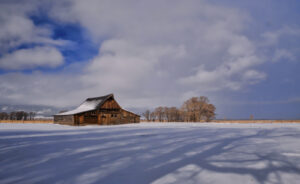 We all have our limits and our own levels of what is real and what’s not real. For me, if you are “tuning up” and image with software or are producing something the camera couldn’t do that allows the image to look like what you visualized, then it’s fine. If it’s something that is added that is a big difference. For me generally, adding things is not good, subtracting is acceptable. Before you say, “see you’re using manipulation!” Did you ever clean up a scene, pick up litter, move a leaf etc. Think about it!
We all have our limits and our own levels of what is real and what’s not real. For me, if you are “tuning up” and image with software or are producing something the camera couldn’t do that allows the image to look like what you visualized, then it’s fine. If it’s something that is added that is a big difference. For me generally, adding things is not good, subtracting is acceptable. Before you say, “see you’re using manipulation!” Did you ever clean up a scene, pick up litter, move a leaf etc. Think about it!
As far as AI in photography goes, I really believe it will not have any affect in my world of nature photography. Sure, we’ll see a giraffe standing in the Rogue River someday, but we’ll know it is a fake and move on. I think that those of us who do the kind of photography we do will just continue in the same manner. Perhaps an image depicted in a natural way will be looked upon as more of an accomplishment than one manipulated not just by using AI. Also it will become more important and a crusade to many of likeminded nature wildlife and travel photographers to continue to strive to get it right not using technology and deception to try and impress others. In the end the only one who needs to like the image is the photographer isn’t it? For me, it’s about the experience and AI cannot replace that, at least not yet.
So those of you who are tech geeks, plagiarizers etc., no problem… go for it, just let us know what you did. For me and lots of my fellow photographers AI is not a big deal and yes, Frankly I don’t give a damm.
Text and Images are © Jack Graham unless noted.


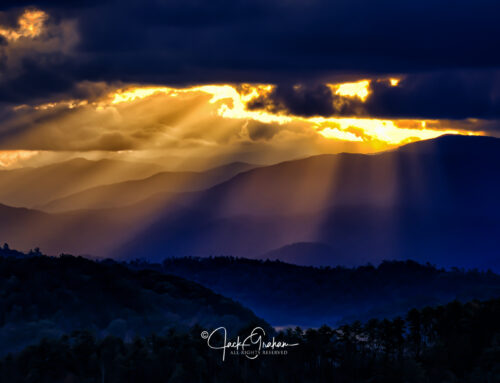
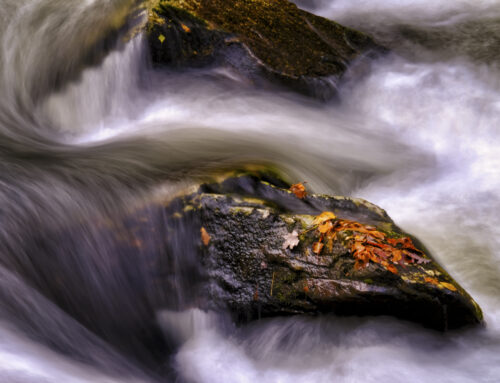
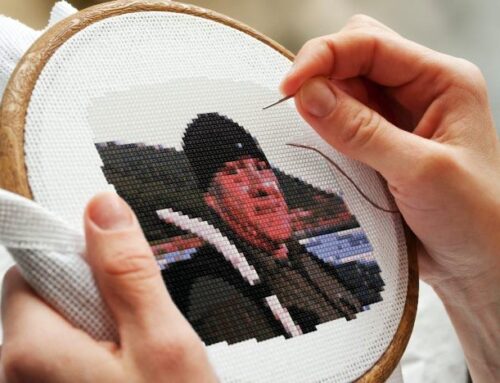
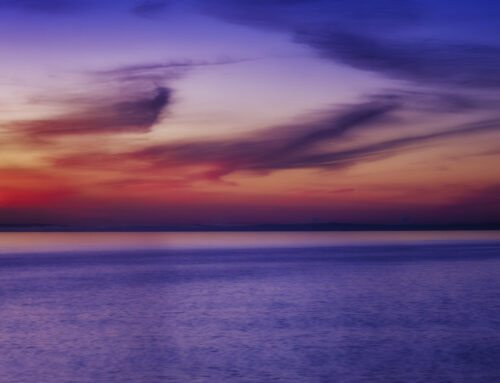
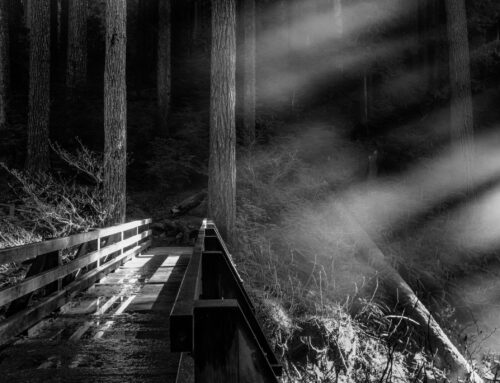
Great article Jack. As you say AI has been with us for a long time in one form or another. Hard to loose sleep over it, but I must say my first reaction to many photos these days is to be a skeptic, then go on and enjoy the artwork